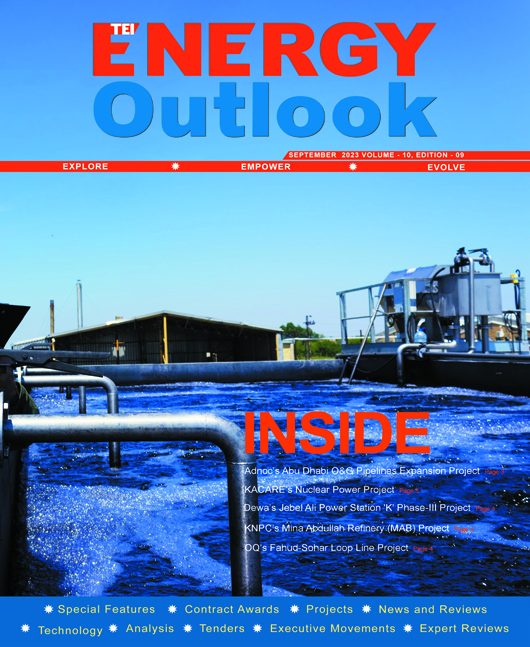
GCC’s Growing Water Sector
Global water demand is projected to increase by 20 to 25% by 2050 and an estimated two-third of the world's population will be living in water-stressed areas by 2025. The Middle East and North Africa is one of the most water-stressed regions where 83% of the population is exposed to extremely high water stress.
The amount of fresh water available to its citizens was reduced by half - from 3,000 cu m per person to 1,500 cu m per person - largely due to the rapid population growth in just over 25 years, between 1975 and 2001. Today, a citizen has over 1,000 cu m available for use, compared to a global average of over 7,000 cu m.
The GCC region remains one of the highest consumers of water in the world with the existing per capita water consumption, ranging from 450 to 500 litres daily. A study says that freshwater supply shortage could be on the horizon if the current trend of water consumption level in the region continues.
Low levels of water reuse and recycling are putting intense pressure on the region’s water industry apart from the GCC’s booming population and steady socio-economic growth.
The GCC governments are accelerating investments to bolster its extremely important water sector. More than 50% of the world’s total desalination output come from the GCC states. The region aims to boost this further by 37% over the next five years, investing $100 billion to address their water requirements.
The combined desalination capacity of GCC countries is expected to increase dramatically to more than 25 million cubic meters a day by 2025.
All GCC governments have ongoing and future plans for water projects. Notable advancements include the endorsement of water-efficient devices and the adoption of treated wastewater. Other initiatives include groundwater treatment; energy-efficient desalination process; potable and industrial water transmission and distribution; and wastewater collection, treatment, and reuse.
To keep pace with demand growth and sustainable water sources; the use of advanced water technologies has become a critical development in the GCC.
Energy resources and the energy sector are heavily tied to the water sector as desalination and other provision capacities are fuelled by oil. Building on innovations already underway in the region. Working together as one ecosystem is essential to meet the challenges of the water and energy nexus to ensure resilient water resources and energy efficient and decarbonized water infrastructure.
Dubai is building its first solar-powered desalination plant in an effort to diversify away from burning fossil fuels to increase its water supply. The plant, using reverse osmosis technology, will have capacity to produce 120 million gallons a day of drinkable water by 2024.
An Independent Water Project (IWP) at Sur is set to become the first facility of its kind in the Sultanate of Oman and the wider Middle East region, to be powered by renewable electricity. Effective this quarter (Q3), the desalination plant will be plugged into a new captive solar photovoltaic (PV) farm installed nearby in partnership with French energy major TotalEnergies.
The policies encouraging efficient water management with new technologies will take on greater importance. Experts believe that water sector will remain a focal point for investors and contractors in 2023 and beyond.
Editor